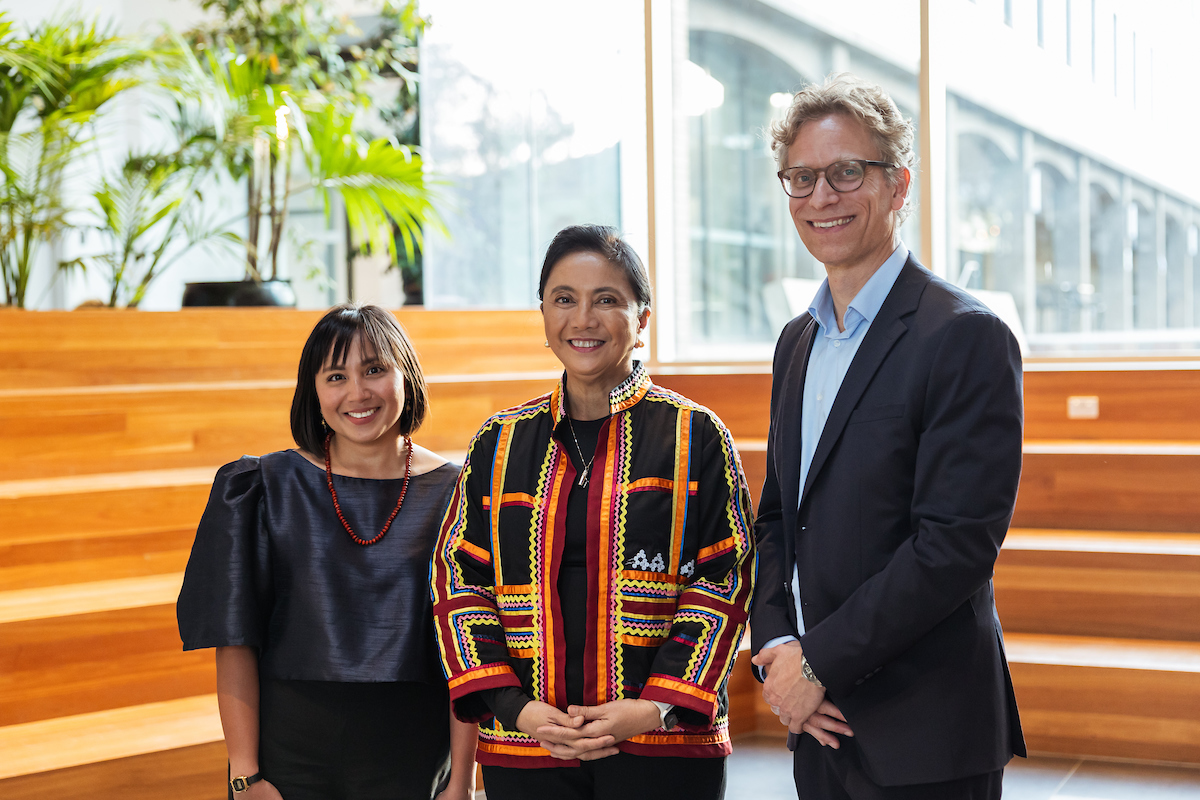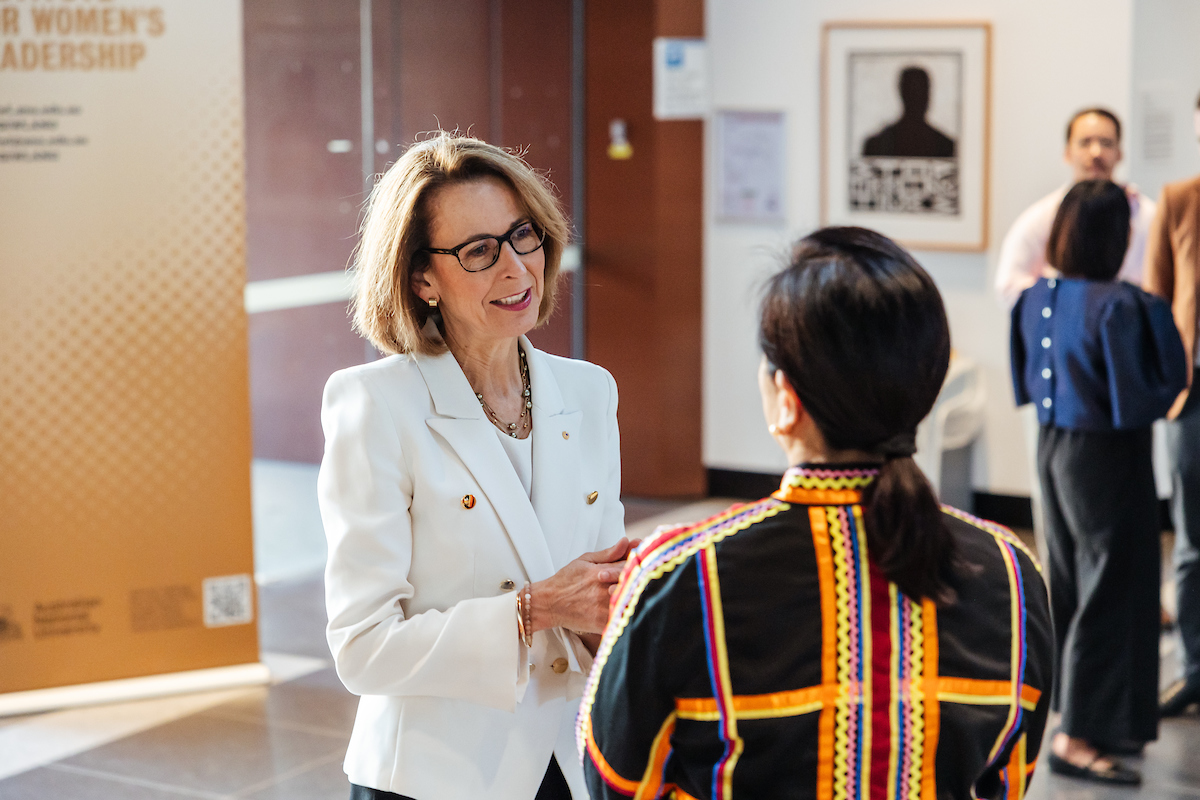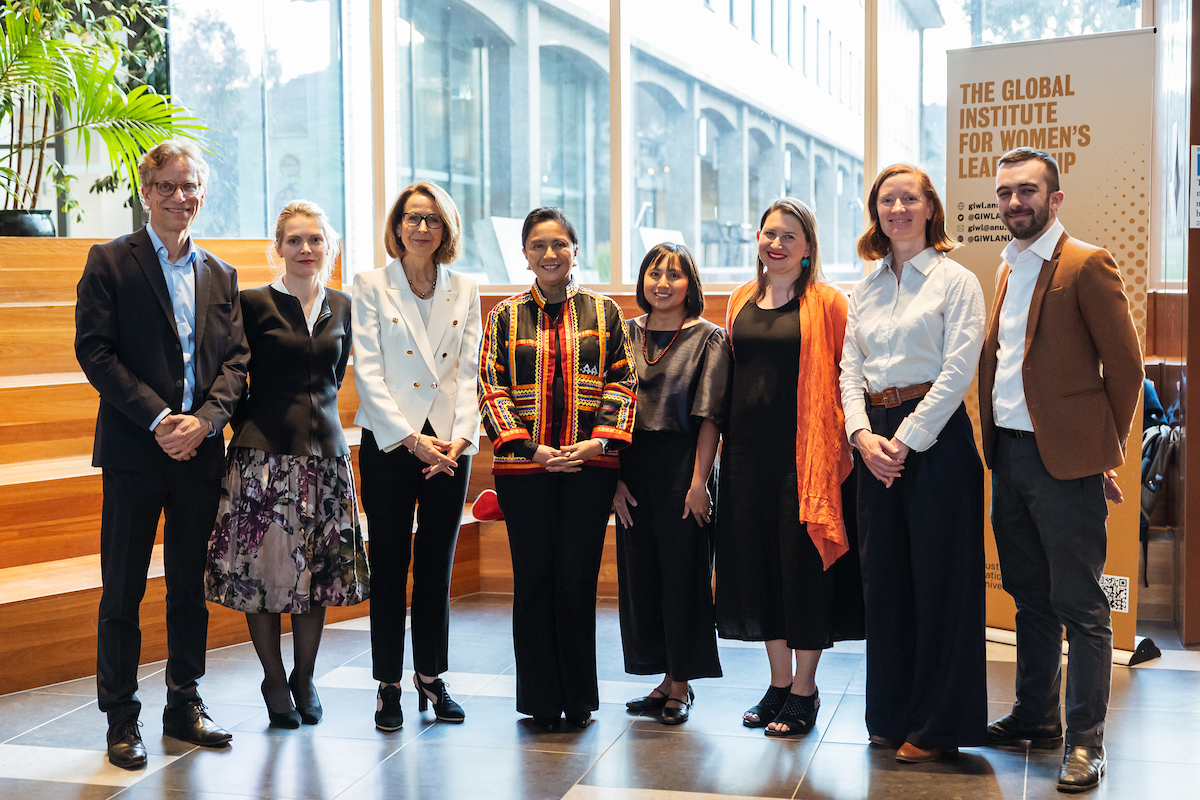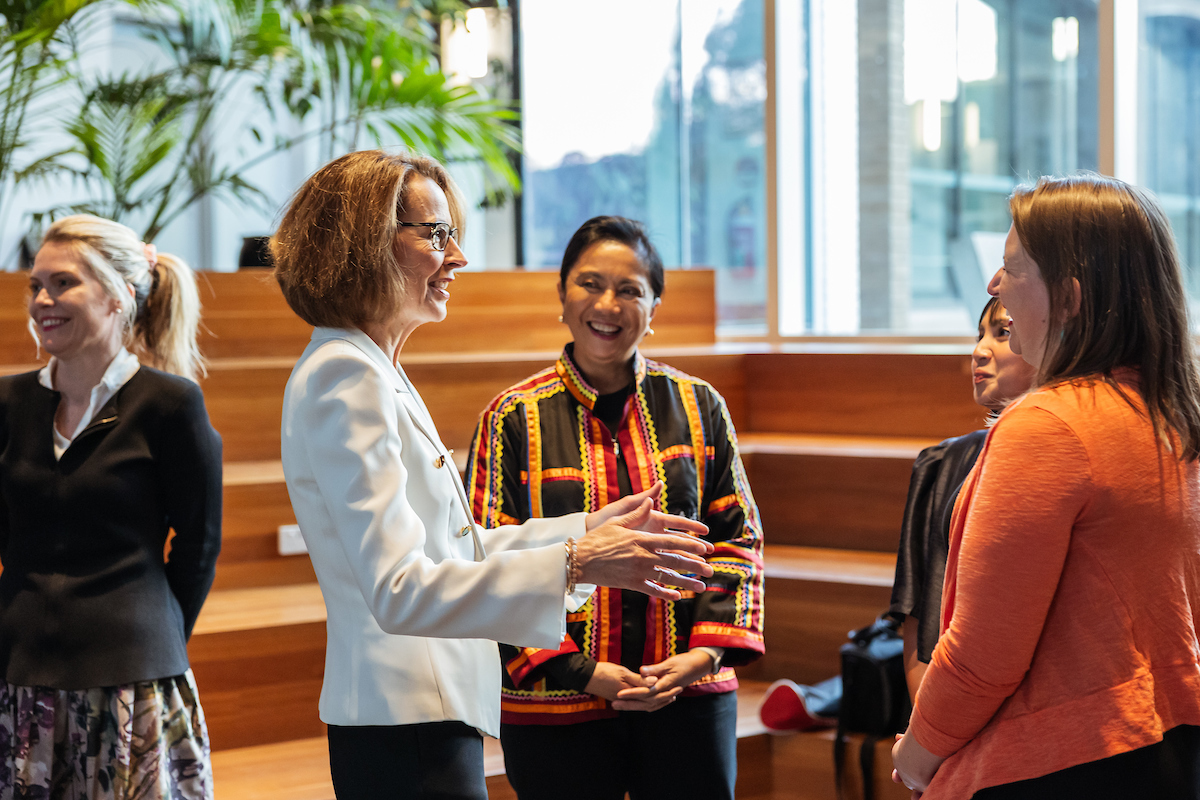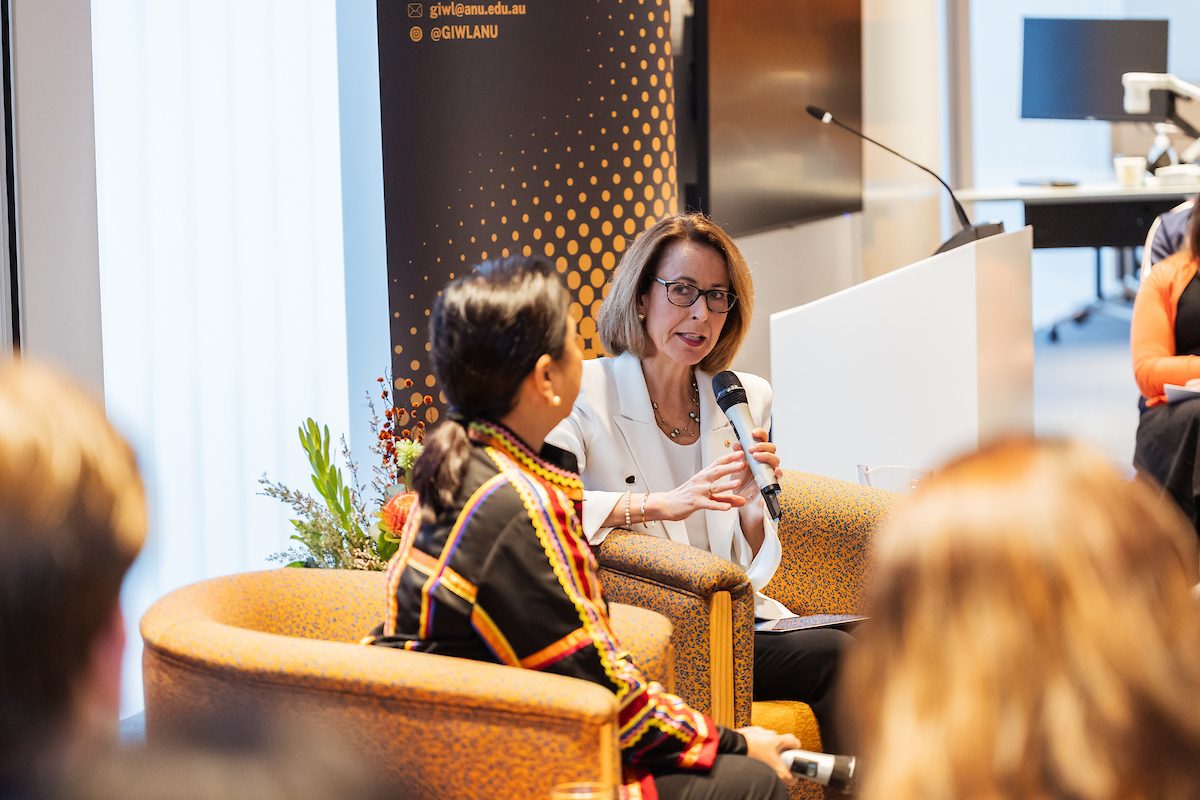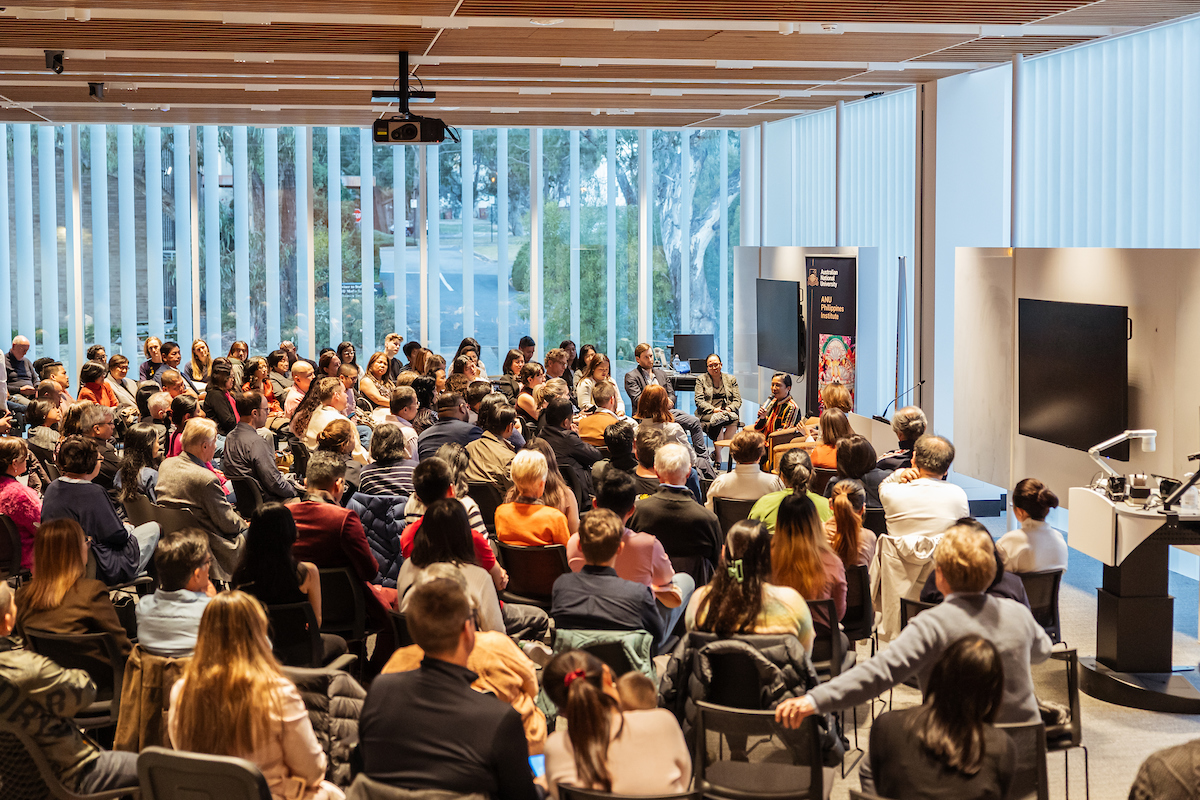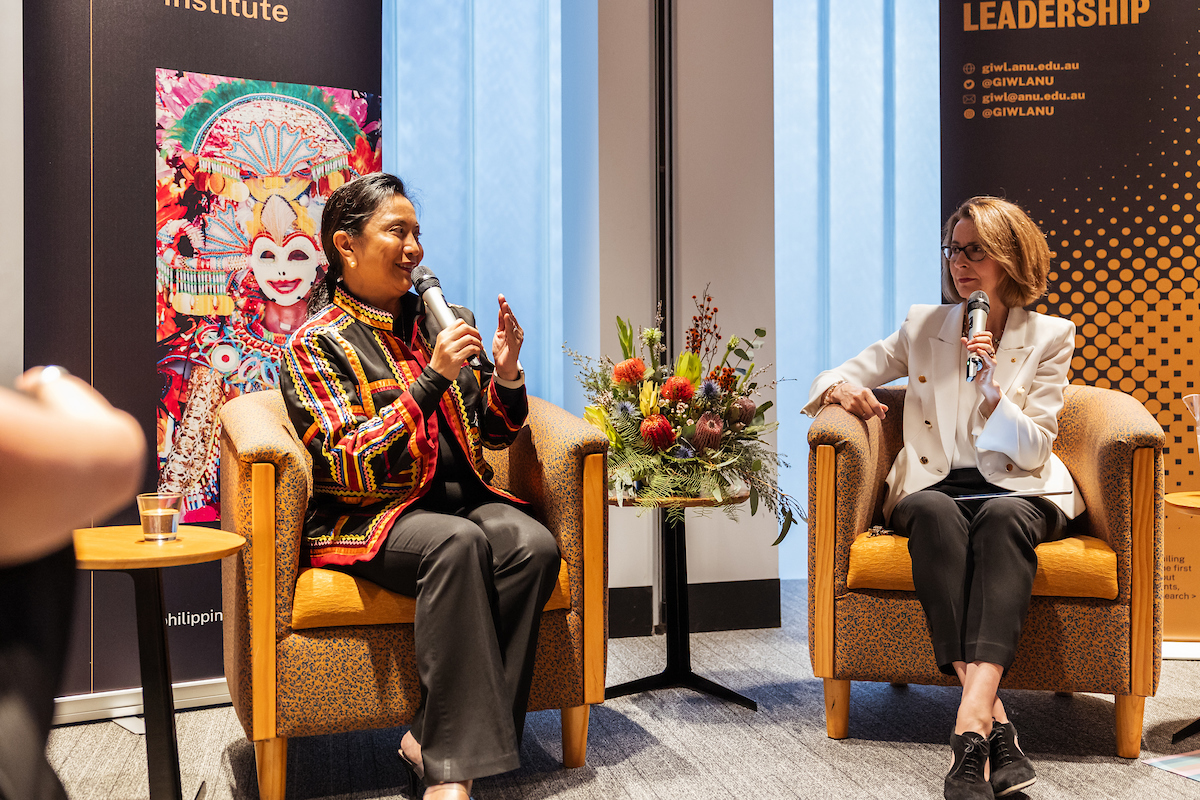In conversation with Leni Robredo: Lessons from the “Pink Revolution”
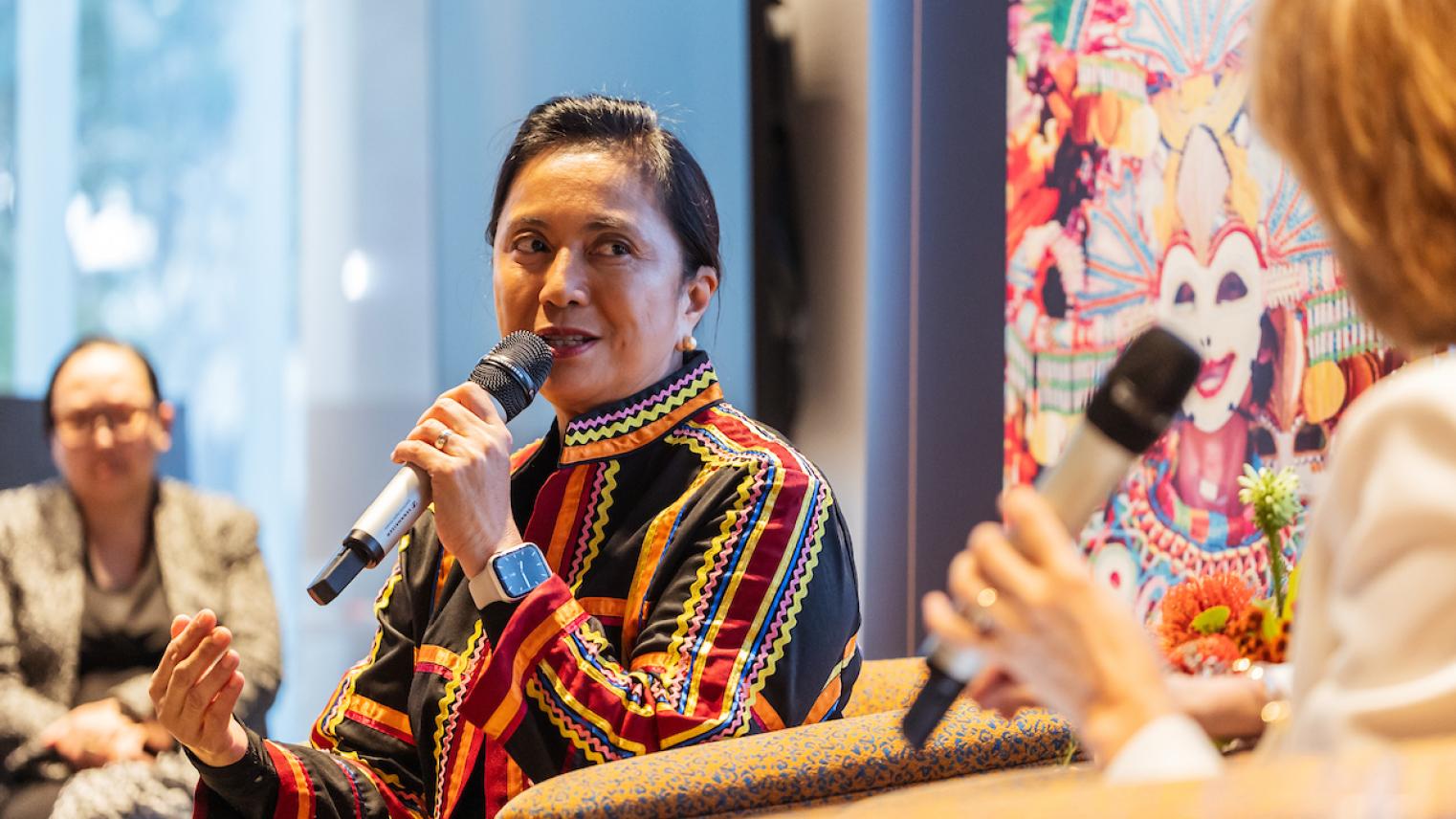
The ANU Philippines Institute, part of the ANU College of Asia and the Pacific, was established to advance Philippines-related research and foster outreach activities aimed at strengthening connections between Australia and the Philippines.
One of the Institute's key pillars, "Gender, Women’s Empowerment, and Peace," is reflected in its focus on seven priority research areas. In line with this, the Institute recently collaborated with the Global Institute for Women’s Leadership to host a special event, featuring former Philippine Vice-President Leni Robredo in conversation with Australian journalist Virginia Haussegger.
Robredo, who served as Vice-President for six years, is renowned for her advocacy in human rights, grassroots development, and her commitment to fighting poverty and corruption. Her 2022 presidential campaign, known as the “Pink Revolution,” was a vibrant movement driven by young Filipinos who rallied behind the only female candidate in a male-dominated political landscape, often defined by "strongman" politics.
Addressing a packed audience at ANU, many wearing pink in solidarity, Robredo spoke candidly about the challenges women face in Philippine politics. She highlighted how social media disinformation, economic inequality, and entrenched political "dynasties" suppress the voices of new and diverse female leaders.
Reflections on leadership and challenges
In her discussion with Haussegger, Robredo reflected on her political journey and the 2022 campaign. Despite her numerous accomplishments—ranging from poverty alleviation programs to an acclaimed COVID-19 response—she was relentlessly targeted by personal and disinformation attacks.
“I focused on the work as Vice-President and instructed my team not to respond to the attacks. Our work was what mattered,” Robredo shared. Unfortunately, this strategy allowed damaging, sexist disinformation to flourish unchecked.
“It was my biggest mistake,” she admitted. “By the time we began responding in 2019, it was too late. Social media doesn’t operate within a fair space, and all our fact-checking stayed confined to our bubble.” Her experience underscored how her gender was used against her, overshadowing the quality of her leadership.
Ongoing barriers for women in politics
Robredo also addressed the broader challenges women in the Philippines face in ascending to political leadership. “Many women enter politics merely as placeholders for their fathers or husbands,” she noted.
In a political system dominated by powerful families, wealth often dictates who can run and win elections. While this system has allowed some women to hold office, Robredo emphasised that the quality of their leadership must be critically assessed.
“We have many women leaders, but a lot of them are part of political dynasties,” she said, urging for a closer evaluation of their contributions.
Building partnerships for change
The event created a platform for meaningful dialogue on the barriers women face in leadership roles in the Philippines. This conversation was further enriched when Atty. Robredo met with ANU students the following day.
Reflecting on these discussions, Associate Professor Bjoern Dressel, Director of the ANU Philippines Institute, emphasized the Institute’s mission: “Our goal is to provide policymakers in both Australia and the Philippines with evidence-based recommendations on critical issues. Through research, policy dialogue, and networking, we aim to foster inclusive development and drive impactful change." Such meetings are a testament to our core mission.
Natalie Barr, Chief Operations Officer at the Global Institute for Women’s Leadership, echoed the sentiment, expressing her enthusiasm for the collaboration.
“We’re pleased to partner with the ANU Philippines Institute to strengthen research, build partnerships, and promote thoughtful discussions about women’s political leadership.”
Together with the ANU College of Asia and the Pacific, the ANU Philippines Institute continues to advance a broad research agenda aimed at transformative change, addressing areas such as politics, economics, human rights, women’s empowerment, and climate change.
For more information about their work and upcoming events, please visit their website.
